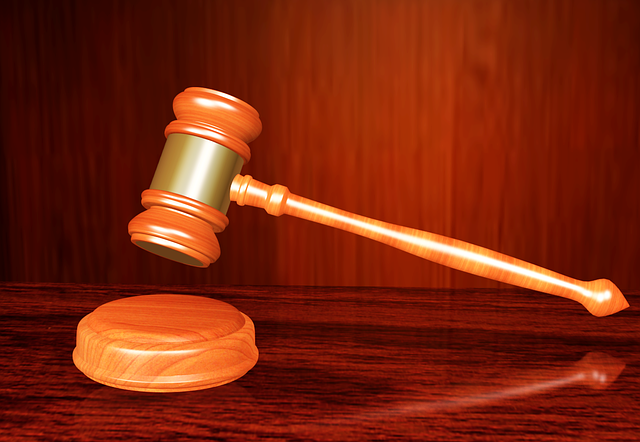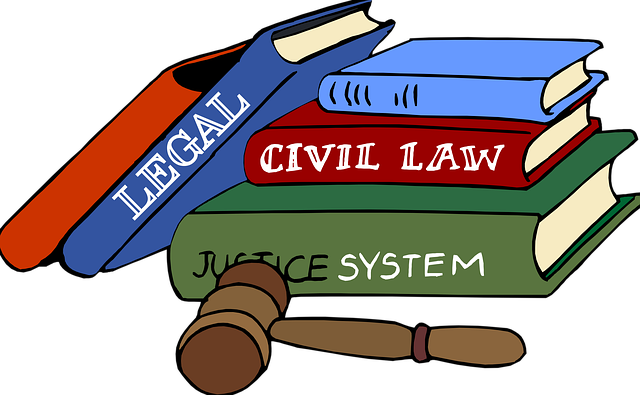Regulatory fraud laws protect consumers, investors, and industry integrity by penalizing deceptive practices. Understanding these regulations, especially Due Process in criminal law cases, is crucial for legal professionals representing clients in white-collar and economic crimes. Balancing accountability with fair trials, evidence handling, and burden of proof ensures justice while managing liabilities in a dynamic regulatory landscape. Severe penalties act as deterrents, encouraging strict adherence to guidelines through internal controls, risk management, staff training, and technology monitoring.
Regulatory fraud laws play a pivotal role in safeguarding markets, investors, and consumers from deceptive practices. This comprehensive guide explores the intricate web of these laws, providing an in-depth look at understanding regulatory fraud, due process rights in criminal law cases, evidence requirements, penalties, and preventive measures. By delving into these aspects, we aim to equip readers with a holistic view of how regulatory fraud is tackled and its implications for businesses and individuals alike.
- Understanding Regulatory Fraud Laws: A Comprehensive Overview
- Due Process Rights: Protecting Defendants in Fraud Cases
- Evidence and Burden of Proof: Navigating Legal Requirements
- Penalties and Sentences: Deterring Fraudulent Activities
- Preventive Measures: Enhancing Regulatory Compliance
Understanding Regulatory Fraud Laws: A Comprehensive Overview

Regulatory fraud laws are designed to protect consumers, investors, and the integrity of various industries by penalizing individuals or entities that engage in deceptive practices. These laws cover a wide range of activities, from financial misdeeds to false representations in product marketing. Understanding these regulations is crucial for both general criminal defense attorneys and corporate legal teams representing clients across different sectors.
For those involved in due process in criminal law cases, recognizing the nuances of regulatory fraud is essential for building winning challenging defense verdicts. It allows lawyers to navigate complex scenarios where business practices blur the lines between legitimate operations and fraudulent activities. This comprehensive overview equips legal professionals with the knowledge to represent both corporate and individual clients effectively, ensuring justice while mitigating potential liabilities in a dynamic regulatory environment.
Due Process Rights: Protecting Defendants in Fraud Cases

In criminal law cases, especially those involving white-collar and economic crimes, protecting defendants’ Due Process rights is paramount to ensure fairness and justice. Due Process guarantees individuals the right to a fair trial, providing them with certain procedural safeguards. This includes the right to be informed of the charges, the opportunity to confront accusers, and access to legal representation. In fraud cases, where allegations can be complex and nuanced, these rights are crucial to safeguard against arbitrary or unjust consequences.
The concept extends beyond merely ensuring a fair trial; it also encompasses the balance between holding individuals accountable for their actions and protecting their right to a reasonable defense. This is particularly relevant in the context of regulatory fraud laws, where the stakes can be high. Defendants should not face the complete dismissal of all charges without a thorough examination of the evidence and an opportunity to present their side, especially within the philanthropic and political communities where such crimes often surface.
Evidence and Burden of Proof: Navigating Legal Requirements

In Regulatory Fraud cases, understanding evidence and the burden of proof is pivotal. The Due Process clause in Criminal Law ensures that defendants face fair trials, a right that extends to presenting their defense without undue interference. This includes gathering and presenting relevant evidence to counter allegations. In these complex cases, where white-collar crimes often involve intricate financial transactions and sophisticated schemes, the bar for proof can be exceptionally high.
Navigating this legal landscape demands meticulous attention to detail. The onus is on prosecutors to prove guilt beyond a reasonable doubt, a standard that requires robust evidence and careful consideration of all factors. For businesses facing regulatory fraud charges, it’s crucial to engage experienced legal counsel specializing in white-collar defense strategies to ensure due process rights are respected throughout the proceedings, including potential jury trials.
Penalties and Sentences: Deterring Fraudulent Activities

Penalties and sentences play a pivotal role in deterring fraudulent activities under regulatory fraud laws. The severity of punishments can significantly influence potential wrongdoers’ decisions to engage in white-collar crimes, such as accounting fraud or insider trading. These penalties are designed to not only punish the perpetrators but also send a clear message across the country that any attempt at circumventing regulations will be met with strict consequences. A robust legal framework ensures due process in criminal law cases, providing defendants with their rights while holding them accountable for their actions.
Sentences can include fines, imprisonment, or both, and are often enhanced based on the scale of fraud, the intent of the perpetrator, and any prior convictions. The threat of these penalties acts as a powerful deterrent, encouraging businesses and individuals to adhere strictly to regulatory guidelines. Moreover, effective prosecution and successful convictions can help in avoiding indictment for high-level executives, ensuring that they face justice while also maintaining the integrity of the corporate structure and fostering trust in the financial markets.
Preventive Measures: Enhancing Regulatory Compliance

Preventive measures are essential to enhancing regulatory compliance and avoiding potential fraud lawsuits. Organizations should implement robust internal controls and risk management strategies to mitigate errors and intentional misconduct. This includes establishing clear policies, procedures, and guidelines that align with legal requirements, particularly in industries subject to stringent regulations. Regular staff training and education on ethical conduct and compliance standards can help foster a culture of integrity from the ground up.
Additionally, leveraging technology for automated data monitoring and analytics can identify anomalies and potential non-compliance issues early on. Conducting regular audits and reviews by both internal teams and external experts ensures that systems remain effective over time. Adhering to due process in criminal law cases is paramount; fair procedures safeguard individuals’ rights while allowing authorities to investigate and prosecute fraud effectively. A robust general criminal defense strategy can help organizations avoid indictment and, in some instances, secure a complete dismissal of all charges.
Regulatory fraud laws are a vital component of maintaining integrity within our economic systems. By understanding these laws, protecting due process rights, and employing robust evidence standards, we can ensure that justice is served while deterring fraudulent activities. Penalties and sentences play a crucial role in upholding regulatory compliance, but so do proactive measures like educational initiatives and stringent oversight. In the pursuit of fairness and transparency, continuous evaluation and refinement of these regulations are essential to foster a more trustworthy environment for all stakeholders.






